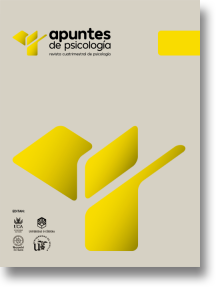Efficiency of therapies: A step beyond effectiveness? Critical analysis of the cognitive-behavioral model
DOI:
https://doi.org/10.55414/ap.v36i1-2.711Abstract
The proliferation of outcome research has placed the cognitive-behavioral model as the therapy of choice for most psychological problems. This type of research leaves aside the analysis of behavioral change processes that underlie the success of different treatmentstechniques. Therefore, it would no longer be important to know what is that makes a technique works as long as it gives the expected results. Consequently, the cognitive-behavioral model has lost the theoretical reflection and the experimental foundation that characterized the modification of behavior on which it was based on its origins. From our perspective, process research would be a necessary preliminary step to outcome research so that it could explain how and why psychological treatments work, avoiding that the clinician simply applies the
procedures described in the standardized manuals.
Downloads
Published
Versions
- 07/07/2022 (2)
- 12/10/2018 (1)

















